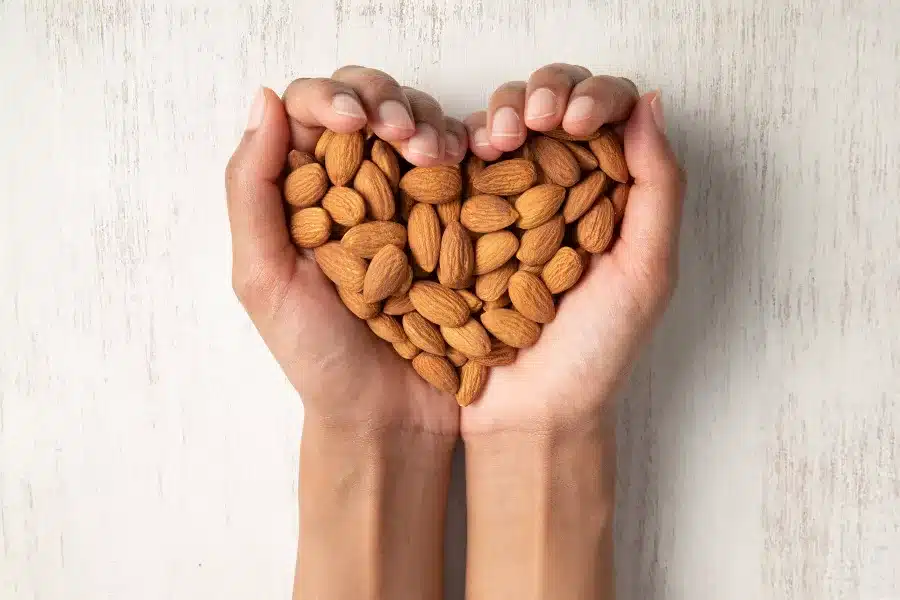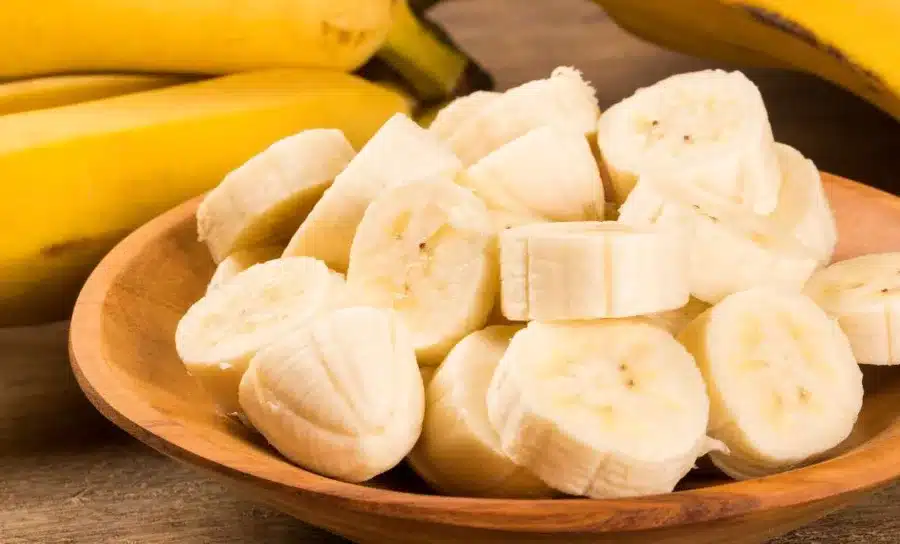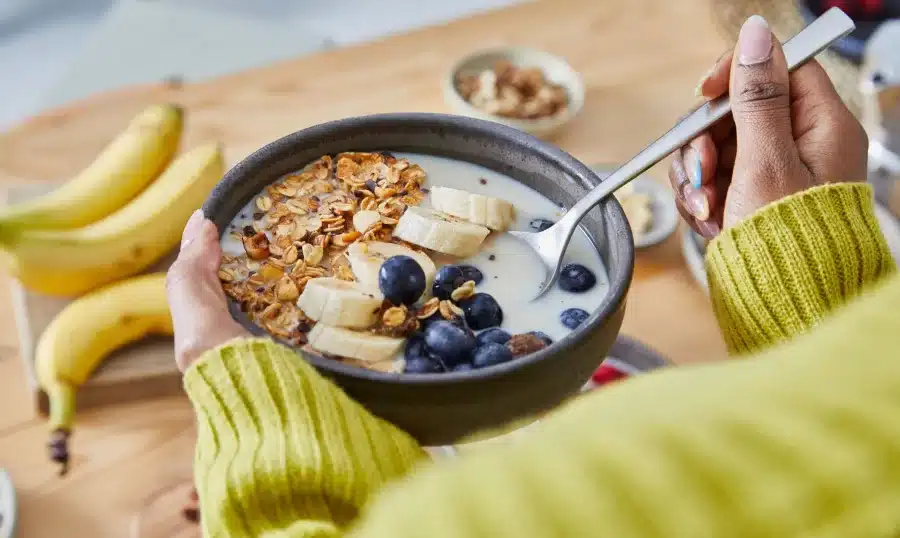Foods That Support Good Sleep: A Natural Path to Restful Nights
Struggling with insomnia or restless nights? The solution might be closer than you think—right on your plate! Foods that support good sleep are more effective than many realize, as they contain natural compounds that help relax the body and improve sleep quality.
n this article, we will explore five powerful sleep-supporting foods and how they work to enhance your nightly rest. By incorporating these options into your evening routine, you can naturally boost your sleep cycle without relying on medication.
1. Cherries: Natural Source of Melatonin

Cherries, especially tart cherries, are a standout when it comes to promoting good sleep. These small, vibrant fruits are packed with melatonin—a hormone responsible for regulating your sleep-wake cycle.
Scientific studies have shown that consuming tart cherry juice can significantly improve sleep duration and quality. For example, one study found that participants who drank tart cherry juice twice daily experienced longer sleep times and better sleep efficiency compared to those who didn’t.
How to Enjoy Cherries for Better Sleep:
Drink a small glass of tart cherry juice 30 minutes before bed.
Snack on a bowl of fresh cherries as a pre-bedtime treat.
2. Almonds: Rich in Magnesium

Almonds are not just a healthy snack—they’re also rich in magnesium, a vital mineral for promoting relaxation and supporting good sleep. Magnesium plays a crucial role in calming the nervous system, reducing stress, and relaxing muscles, all of which are essential for a restful night.
Research shows that magnesium deficiency can lead to sleep disorders, including insomnia. Adding almonds to your diet is a delicious way to increase your magnesium levels and improve your sleep quality.
How to Incorporate Almonds:
Eat a small handful of almonds as a bedtime snack.
Add almond butter to a banana for a double dose of sleep-promoting nutrients.
3. Bananas: High in Potassium and Magnesium

Bananas are an excellent source of potassium and magnesium, two minerals that work together to promote relaxation and better sleep. Potassium helps relax muscles, while magnesium calms the nervous system.
In addition to these minerals, bananas are rich in tryptophan, an amino acid that your body converts into serotonin and melatonin—both essential for regulating sleep.
Ways to Enjoy Bananas for Sleep:
Slice a banana over oatmeal for a relaxing evening snack.
Blend a banana with almond milk for a soothing bedtime smoothie.
4. Oats: A Great Source of Melatonin and Fiber

Oats are a surprising yet effective food for supporting good sleep. They are rich in melatonin and complex carbohydrates, which help increase the availability of tryptophan in the brain. This combination promotes the production of serotonin, helping you feel relaxed and ready for sleep.
Oats are also high in fiber, which keeps you feeling full and prevents late-night hunger from disturbing your sleep.
How to Enjoy Oats Before Bed:
Prepare a warm bowl of oatmeal with a drizzle of honey and a sprinkle of cinnamon.
Add almonds or dried tart cherries to your oatmeal for an extra sleep boost.
5. Herbal Tea: Chamomile and Lavender

Herbal teas, such as chamomile and lavender, have long been celebrated for their sleep-promoting properties. Chamomile contains apigenin, an antioxidant that binds to specific brain receptors, promoting relaxation and reducing anxiety.
Lavender, on the other hand, is known for its calming effects and ability to improve sleep quality. Drinking a warm cup of herbal tea before bed can create a calming ritual that signals your body to wind down.
How to Incorporate Herbal Teas:
Brew a cup of chamomile tea 30 minutes before bed.
Add a touch of honey or a slice of lemon for added flavor and relaxation.
The Science Behind Food and Sleep
The connection between food and sleep lies in the nutrients and compounds found in certain foods. For example, melatonin, magnesium, potassium, and tryptophan all play essential roles in regulating sleep.
Melatonin: Helps control your sleep-wake cycle.
Magnesium: Relaxes muscles and calms the nervous system.
Tryptophan: Converts to serotonin and melatonin, promoting relaxation.
Potassium: Reduces muscle cramps and enhances relaxation.
By choosing foods rich in these nutrients, you can naturally improve your sleep quality without the need for over-the-counter remedies or medications.
Practical Tips for Incorporating Sleep-Friendly Foods
To maximize the benefits of these foods, consider the following tips:
Create a Pre-Bedtime Routine: Enjoy a light snack or drink that includes one or more of these foods about 30 minutes before bed.
Combine Foods for Maximum Impact: Pair foods like bananas and almonds or oatmeal and cherries for a synergistic effect.
Stay Consistent: Incorporating these foods regularly into your diet can yield better long-term sleep improvements.
Avoid Heavy Meals: Eating large or spicy meals close to bedtime can disrupt sleep. Stick to light, sleep-supporting snacks instead.
Nourish Your Way to Better Sleep
By adding these foods that support good sleep to your nightly routine, you can naturally enhance your sleep quality and wake up feeling refreshed. Whether it’s a bowl of tart cherries, a handful of almonds, or a soothing cup of chamomile tea, these options offer a delicious way to promote relaxation and restful nights.
Call to Action:
Are you ready to improve your sleep naturally? Start incorporating these foods into your diet tonight! Share this article with friends and family who could benefit from a better night’s rest, and let us know your favorite sleep-friendly foods in the comments below.
- Zendaya’s Fitness Routine Is All About Fun and Function - April 21, 2025
- Happy Easter Sunday 2025: Top 60+ Wishes, Quotes, Messages & Greetings - April 20, 2025
- Grocery Stores Closed on Easter Sunday 2025: Full List - April 20, 2025

